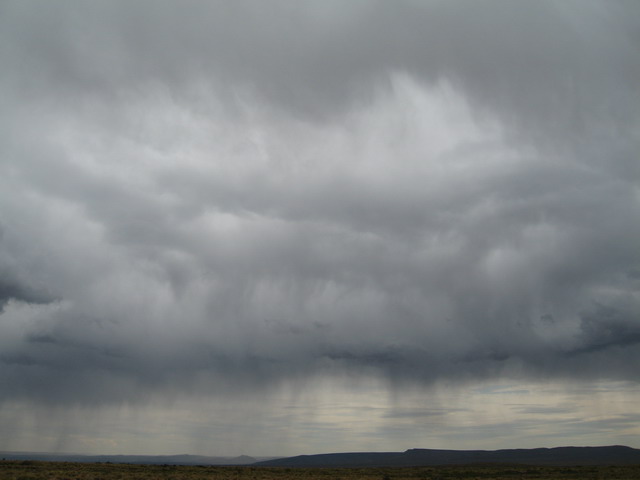FWP:
This verse is an obvious companion piece to {48,5}. Compared to that one it's an even clearer example of 'elegance in assigning a cause', because the equation is made explicit. The speaker maintains that in his opinion the bursting open and raining down, and thus the vanishing, of the springtime rainclouds 'is' their weeping their hearts out in the grief of separation, until they become entirely empty and obliterated.
Thus the macrocosm is identified with the microcosm: the causes that inform the lover's behavior operate on the spring rainclouds as well. Not that this claim is made with a show of objectivity: on the contrary, it is true 'to me' [mujhe]. But what else does the ghazal universe consist of, except the passionate (and mad?) lover's subjectivity?
For another example of the 'springtime raincloud', see {33,7}. For an invocation of the 'rainy season' that isn't necessarily equated with spring, see {48,10}. And for a general discussion of the fascinating problem of 'springtime' versus the 'rainy season', see {49,4}.
I couldn't resist including these excerpts from Ghalib's letters, in order to juxtapose the poetically weeping clouds of the ghazal world to the actual rains that Ghalib experienced during one particularly severe and painful monsoon season. And how could I not also add Nazir Akbarabadi's barsaat aur phislan ?

Ghalib:
[July 28, 1862, to Ala'i:] Listen-- Thursday to Thursday eight; Friday nine; Saturday ten; Sunday eleven. Not for a single eyelash-flicker does the rain stop coming down in torrents. Right now it's pouring. I've had a charcoal brazier lit and placed beside me; I write two pages, then dry the paper by the fire. What can I do? I must certainly answer your letter....
My dear boy, I'm in great difficulty. The doors of the ladies' apartments [ma;hal-saraa] have collapsed. The bathroom has become a ruin. Water is dripping through the roof. Your aunt [=Ghalib's wife] keeps saying, 'Alas, I'm crushed! Alas, I'm killed!' My own apartments [diivaan-;xaanah] are in even worse shape. I am not afraid of dying, I'm fearful of a lack of peace/comfort. The roof is a sieve. If the clouds rain for two hours, then the roof rains for four. If the landlord wants to make repairs, how can he do so? If the rain would stop, then everything would be done. And then, while the repairs are being made, how can I keep sitting here? If you can, then get your father to give me, for the duration of the rainy season, the haveli where Mir Hasan used to live, for your aunt to stay in; and the upper apartment with the downstairs hall where the late Ilahi Bakhsh Khan lived, for me to stay in. When the rainy season is over, the repairs will be made....
==Another trans.: Russell and Islam pp. 272, 275
==Urdu text: Khaliq Anjum vol. 1, pp. 394-95, pp. 398-99